
Foggy Church Graveyard — Image by © Royalty-Free/Corbis
Individual Psychology
Alfred Adler, a renowned psychologist and a founding figure of individual psychology, had a significant realization during a childhood experience that shaped his profound insights into psychology. As he remembered running past a graveyard and a church, Adler developed a framework of ideas that have become common practice in contemporary psychology. Adler developed many key concepts, including compensation, interpersonal relationship problems, and the courage to be disliked.
One of Adler’s fundamental concepts is compensation. He observed that individuals tend to compensate for feelings of inferiority or perceived deficiencies by developing strengths or striving for superiority in other areas of their lives. According to Adler, this compensation mechanism is an innate and adaptive response to overcome perceived limitations. For example, a person who feels inadequate in academics may compensate by excelling in sports or artistic pursuits. This concept underscores the importance of recognizing that individuals have the capacity to overcome their perceived shortcomings by harnessing their unique strengths and talents.
Adler’s focus on interpersonal relationship problems also became a central tenet of his theory. He believed that human beings are fundamentally social creatures and that our psychological well-being is deeply intertwined with our relationships with others. Adler emphasized the significance of social interest, which refers to an individual’s innate drive to contribute positively to society and establish meaningful connections with others. He posited that many psychological issues arise from maladaptive patterns of relating to others. By exploring and improving interpersonal relationships, individuals can experience personal growth, fulfillment, and a sense of belonging.
Another key concept derived from Adlerian psychology is the courage to be disliked. Adler believed that the fear of rejection and the desire for approval often hinder personal growth and authenticity. He argued that true self-actualization requires individuals to embrace their uniqueness and have the courage to pursue their own goals and aspirations, even if it means facing criticism or disapproval from others. By developing the courage to be disliked, individuals can liberate themselves from the shackles of external validation and live more authentically.
According to Adler, all psychological difficulties can be traced back to an individual’s inability to effectively navigate two essential aspects of human interaction: helping others and patiently waiting until they seek assistance. This fundamental principle underscores Adler’s emphasis on social interest, cooperation, and the importance of healthy interpersonal relationships in therapy.
Adler believed that humans are inherently social beings, driven by a deep-seated desire for connection and belonging. He argued that individuals who struggle with psychological issues often exhibit a deficiency in their ability to engage in mutually beneficial relationships with others. The inability to genuinely offer help or support, and conversely, the failure to wait until asked for assistance, lies at the core of many psychological problems.
Adler and Freud
Adler had several disagreements with Sigmund Freud, the founder of psychoanalysis. While Freud’s theories heavily emphasized the role of unconscious sexual and aggressive drives, Adler proposed a distinct perspective on human behavior and motivation. The differences between Adler and Freud revolved around key concepts such as the nature of human motivation, the influence of social factors, and the significance of the individual’s sense of purpose and social interest.
One fundamental disagreement between Adler and Freud lies in their contrasting views on the primary motivators of human behavior. Freud posited that instinctual drives, particularly those related to sexual and aggressive impulses, were the primary forces that shaped human actions and influenced psychological development. In contrast, Adler believed that the driving force behind human behavior was the pursuit of superiority and the striving for personal and social goals. Adler emphasized that individuals are primarily motivated by a desire to overcome feelings of inferiority and achieve a sense of significance and belonging.
Another point of contention between Adler and Freud pertains to the significance of social factors in shaping human behavior. While Freud focused largely on internal psychological processes and the individual’s internal conflicts, Adler recognized the impact of social dynamics and the influence of one’s social environment. Adler emphasized the importance of social relationships and the individual’s sense of belonging within a community. He believed that individuals are influenced by their interactions with others, and that social factors play a crucial role in shaping their behavior and psychological well-being.
Additionally, Adler disagreed with Freud’s emphasis on the unconscious mind as the primary determinant of human behavior. While Freud argued that unconscious processes exerted a powerful influence on individuals, shaping their thoughts, emotions, and behaviors, Adler placed greater emphasis on conscious awareness and the individual’s capacity to make choices and take responsibility for their actions. Adler believed that individuals have the ability to consciously direct their lives and make purposeful decisions, challenging the deterministic nature of Freud’s psychoanalytic theory.
The concept of helping others encompasses not only the act of providing aid and support but also the cultivation of empathy, compassion, and a genuine interest in the well-being of others. Adler recognized that individuals who possess a strong sense of social interest—the capacity to care about and contribute to the welfare of others—are more likely to experience positive mental health and fulfillment in their lives. In therapy, fostering social interest becomes a crucial aspect of the healing process, enabling individuals to shift their focus from self-centeredness to a broader concern for the welfare of the community.
Equally important is the concept of patiently waiting until others ask for help. Adler acknowledged the significance of autonomy and personal agency in human development and mental well-being. He believed that individuals should be encouraged to take ownership of their lives and seek assistance when they feel ready and willing to do so. In therapy, the therapist’s role is not to impose solutions or dictate the direction of the client’s journey but rather to create a safe and supportive space where individuals can explore their concerns, gain insights, and make their own choices.
Adler on Helping and Waiting to be Asked
Adler’s emphasis on helping others and waiting until they ask for help aligns with the principles of collaboration, respect, and empowerment that underlie contemporary therapeutic approaches. Person-centered therapy, for example, places a strong emphasis on creating a therapeutic relationship characterized by unconditional positive regard, empathy, and active listening. Therapists adopt a non-directive stance, allowing clients to explore their experiences at their own pace and make decisions that align with their values and aspirations.
Adler’s belief that all problems in therapy arise from a lack of knowledge on how to effectively help others and patiently wait until they seek help sheds light on the importance of social interest and respectful collaboration in therapy. By cultivating social interest and empowering individuals to take ownership of their therapeutic journey, therapists can support the development of healthy interpersonal relationships and facilitate positive change. Adler’s insights continue to be influential in contemporary therapy, emphasizing the significance of human connection, cooperation, and the recognition of individual agency in the therapeutic process.
Adler’s ideas have had a profound impact on contemporary psychology, shaping therapeutic approaches such as Adlerian therapy or individual psychology. These approaches aim to empower individuals to recognize and overcome feelings of inferiority, foster healthy and fulfilling interpersonal relationships, and cultivate the courage to live authentically.
In Adlerian therapy, the therapist and client work collaboratively to identify and challenge unhelpful beliefs and behaviors that stem from compensatory strategies or difficulties in relating to others. The therapeutic process emphasizes the importance of exploring early life experiences, family dynamics, and social contexts to gain insight into the individual’s unique psychological makeup. By understanding the individual’s subjective experience and the underlying motivations driving their behavior, Adlerian therapy seeks to promote personal growth, resilience, and a greater sense of belonging.
Adler’s realization about psychology, triggered by his childhood experience, laid the foundation for transformative ideas that have become widely accepted in contemporary psychology. His concepts of compensation, the significance of interpersonal relationships, and the courage to be disliked have had a lasting impact on therapeutic approaches and our understanding of human behavior. By embracing Adlerian principles, individuals can embark on a journey of self-discovery, personal growth, and the pursuit of a more authentic and fulfilling life.
Did you enjoy this article? Checkout the podcast here: https://gettherapybirmingham.podbean.com/
Bibliography:
Adler, A. (1927). Understanding Human Nature. Garden City Publishing Company.
Adler, A. (1930). The Science of Living. Greenberg.
Adler, A. (1964). Superiority and Social Interest: A Collection of Later Writings. W.W. Norton & Company.
Adler, A. (1979). Cooperation Between the Sexes: Writings on Women, Love and Marriage, Sexuality and Its Disorders. Anchor Press.
Ansbacher, H. L., & Ansbacher, R. R. (1956). The Individual Psychology of Alfred Adler: A Systematic Presentation in Selections from His Writings. Basic Books.
Bottome, P. (1939). Alfred Adler: Apostle of Freedom. Vanguard Press.
Carlson, J., Watts, R. E., & Maniacci, M. (2005). Adlerian Therapy: Theory and Practice. American Psychological Association.
Hoffman, E. (1994). The Drive for Self: Alfred Adler and the Founding of Individual Psychology. Addison-Wesley.
Mosak, H. H., & Maniacci, M. P. (1999). A Primer of Adlerian Psychology: The Analytic-Behavioral-Cognitive Psychology of Alfred Adler. Brunner/Mazel.
Watkins, C. E. (1994). Adlerian Psychotherapy. In R. J. Corsini & D. Wedding (Eds.), Current Psychotherapies (5th ed., pp. 54-94). F.E. Peacock.
Further Reading:
Dinkmeyer, D., Dinkmeyer, D. C., Jr., & Sperry, L. (1987). Adlerian Counseling and Psychotherapy (2nd ed.). Merrill.
Dreikurs, R. (1967). Psychodynamics, Psychotherapy, and Counseling: Collected Papers. Alfred Adler Institute.
Dreikurs, R. (1973). Fundamentals of Adlerian Psychology. Regnery.
Gushurst, R. S. (1971). The Individual Psychology of Alfred Adler: Toward Understanding. Harvard Educational Review, 41(2), 223-246.
Kern, R. M., Treme, A. B., & Richardson, R. C. (1996). Understanding Lifestyle: The Psycho-Social Perspective. Taylor & Francis.
Manaster, G. J., & Corsini, R. J. (1982). Individual Psychology. Peacock.
Mosak, H. H., & Dreikurs, R. (2000). Adlerian Psychotherapy. In R. J. Corsini & D. Wedding (Eds.), Current Psychotherapies (6th ed., pp. 63-106). F.E. Peacock.
Orgler, H. (1963). Alfred Adler: The Man and His Work. Liveright.
Sommers-Flanagan, J., & Sommers-Flanagan, R. (2012). Counseling and Psychotherapy Theories in Context and Practice: Skills, Strategies, and Techniques. John Wiley & Sons.



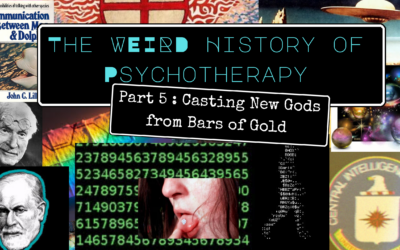


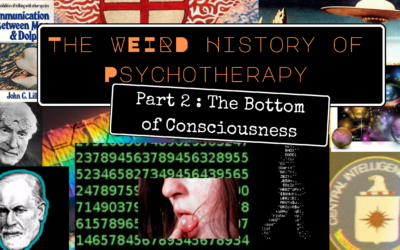

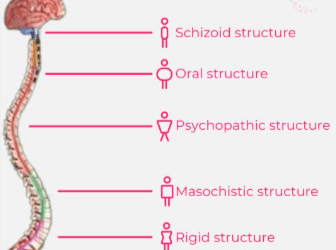













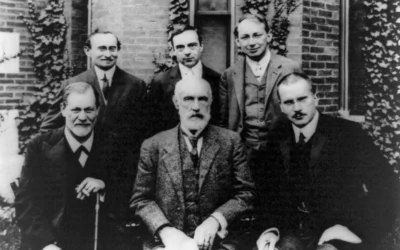
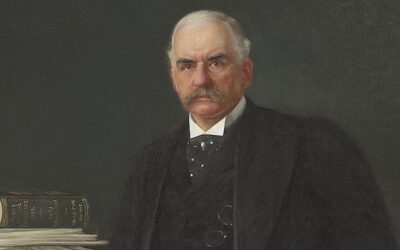

0 Comments